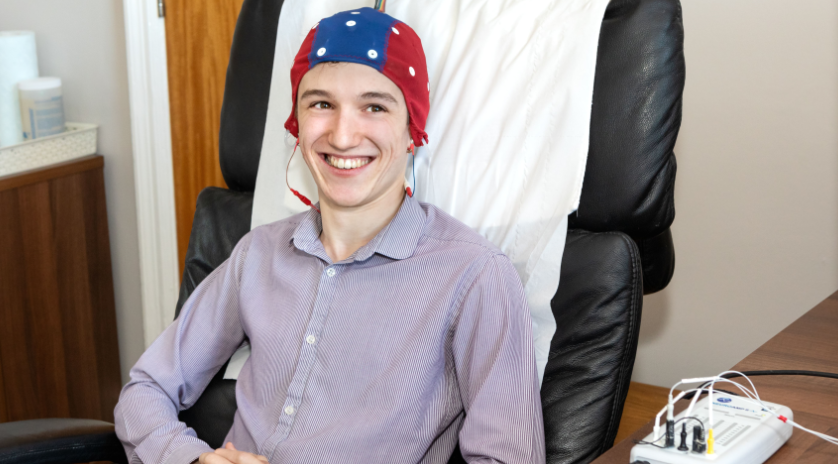Neurofeedback is one of the safe, alternative therapies the BART Foundation believes may help brain injury survivors. The BART Foundation aims to promote better outcomes for TBI/ABI survivors by answering three questions: Which alternative therapies are likely to work, where can they be found, and how can they be afforded? We fulfill our mission by carefully monitoring global research and clinical trial outcomes and sharing that information in user-friendly language with the TBI/ABI community.

We wanted to share a recent article published in the March-April 2025 issue of Explore that discussed research in neurofeedback. The purpose of this study was to ascertain the impact infra-low-frequency neurofeedback (ILF NFB) has on post-concussive symptoms of headache, sleep, and attention disorders experienced by combat Veterans.
We provide a brief overview and encourage everyone to review the original and consider sharing it with your medical team.
https://pubmed.ncbi.nlm.nih.gov/37125901/
Infra-low frequency neurofeedback impact on post-concussive symptoms of headache, insomnia, and attention disorder: Results of a randomized control trial
Neurofeedback (NFB) is a specialized form of biofeedback, a treatment method that helps individuals become more aware of and self-regulate their own physiology. The NFB system can reflect a person’s brain wave activity in real-time through conventional electroencephalography, providing relevant information that the brain responds to, thereby improving core state regulation. A recent technological advanced NFB, called infra-low frequency (ILF) NFB, was initially conceived in 2006 and has developed over time to its present level of functional capacity.
Background
ILF NFB, a non-invasive integrative health intervention, has demonstrated clinical efficacy in treating several physical and psychological conditions, including headaches, dysregulated sleep, and attentional dysfunctions. Given that 20–40 % of combat Veterans who experienced concussions during recent military operations suffer chronically from these disorders, this study aims to determine whether ILF NFB might be an effective treatment option.
Methods
Eighty-seven participants were enrolled in this randomized controlled trial, with 36 completing the intervention (Twenty 1/2-hour sessions of ILF NFB and 4 assessment sessions) and 38 completing the control procedures (8 weekly 15-minute health related discussions and 4 assessment sessions). Both groups continued treatment as usual throughout participation in study. Data were analyzed on intent to treat principle.
Results
Eighty-six percent of the participants were male, and 14% were female; the mean age was 45 for both groups. When comparing baseline to end-of-treatment measures, findings were clinically and statistically significant for headache, sleep, and attention. Additional variables of interest were also significantly improved following ILF NFB, including quality of life, depressive symptoms, and symptoms of posttraumatic stress disorder. Looking to the future, ILF NFB holds promise to be a safe and effective intervention for those who suffer from post-concussive symptoms of chronic headache, sleep, and attention disorders.
